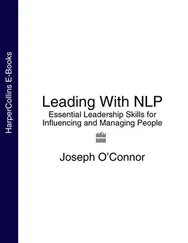John Gray - Children Are from Heaven - Positive Parenting Skills for Raising Cooperative, Confident, and Compassionate Children
Здесь есть возможность читать онлайн «John Gray - Children Are from Heaven - Positive Parenting Skills for Raising Cooperative, Confident, and Compassionate Children» весь текст электронной книги совершенно бесплатно (целиком полную версию без сокращений). В некоторых случаях можно слушать аудио, скачать через торрент в формате fb2 и присутствует краткое содержание. Год выпуска: 1999, ISBN: 1999, Издательство: HarperCollins e-books, Жанр: psy_childs, sci_pedagogy, Психология, на английском языке. Описание произведения, (предисловие) а так же отзывы посетителей доступны на портале библиотеки ЛибКат.
- Название:Children Are from Heaven: Positive Parenting Skills for Raising Cooperative, Confident, and Compassionate Children
- Автор:
- Издательство:HarperCollins e-books
- Жанр:
- Год:1999
- ISBN:978-0-06-133886-1
- Рейтинг книги:4 / 5. Голосов: 1
-
Избранное:Добавить в избранное
- Отзывы:
-
Ваша оценка:
- 80
- 1
- 2
- 3
- 4
- 5
Children Are from Heaven: Positive Parenting Skills for Raising Cooperative, Confident, and Compassionate Children: краткое содержание, описание и аннотация
Предлагаем к чтению аннотацию, описание, краткое содержание или предисловие (зависит от того, что написал сам автор книги «Children Are from Heaven: Positive Parenting Skills for Raising Cooperative, Confident, and Compassionate Children»). Если вы не нашли необходимую информацию о книге — напишите в комментариях, мы постараемся отыскать её.
Children Are from Heaven: Positive Parenting Skills for Raising Cooperative, Confident, and Compassionate Children — читать онлайн бесплатно полную книгу (весь текст) целиком
Ниже представлен текст книги, разбитый по страницам. Система сохранения места последней прочитанной страницы, позволяет с удобством читать онлайн бесплатно книгу «Children Are from Heaven: Positive Parenting Skills for Raising Cooperative, Confident, and Compassionate Children», без необходимости каждый раз заново искать на чём Вы остановились. Поставьте закладку, и сможете в любой момент перейти на страницу, на которой закончили чтение.
Интервал:
Закладка:
For example, a five-year-old child wants a cookie, but his mother wants him to wait until after dinner.
BOBBIE: Mommy, I want a cookie.
MOTHER: It’s getting close to dinner time. I want you to wait until after dinner and then you can have one.
BOBBIE: But I want one now . . .
The child bursts into an angry tantrum. The mother first listens to understand Bobbie’s resistance. After pausing to listen, she calmly says, “I know you want a cookie now . You are really angry because you want a cookie, and I won’t give you one.”
At this point, Bobbie relaxes for a moment and lets go of his resistance. This is because he thinks now that Mommy knows what he wants, he will get his cookie. Then the mother says, “You still have to wait until after dinner.”
Sometimes this degree of understanding will be enough, but at other times a child will need more before he or she can cooperate. Most of the time children resist their parents simply because they don’t feel heard or seen.
Children resist their parents simply because
they don’t feel heard or seen.
Let’s explore what happens when Bobbie needs more time and understanding. After letting go of the anger that erupted during his tantrum, he now feels disappointed and sad. Although Bobbie continues to resist his mother, his resistance has a different quality. It has naturally shifted from anger to disappointment or sadness. Bobbie begins to cry saying, “I never get what I want. I don’t want to wait.”
Again, the mother gives understanding and identifies the unmet want, wish, or need. The mother says, “I understand you feel sad. You want a cookie and you don’t want to wait. It’s a long time to wait.”
Clearly, the resistance is being minimized, but more importantly a deeper level of feeling is coming up. After a little crying, the child’s fears will begin to surface. The child resists now by saying, “I’ll never get my cookie. I never get what I want. I only want one. Why can’t I just have a cookie?”
At this step, the mother avoids giving any explanation and continues to understand and identify the feelings and wants. She says, “I know you are afraid that you will never get your cookie. It is a long time to wait. I will make sure you get your cookie. I promise. Come here, sweetie, let me give you a hug. I love you so much.”
At this point, Bobbie melts into his mother’s arms and gets the love, reassurance, and support he really needed in the first place. Usually when children resist cooperating, they are needing something a little deeper. They need to be understood and loved and then they just need a hug.
TAKING TIME TO LISTEN
After reading this example of exploring with children the deeper feelings under their resistance, you may be thinking, “I can’t do this every time my child resists me. You don’t understand my children. They will consume all my time resisting.” This would be true except that this skill really works. It minimizes resistance and creates more cooperation. If you take the time to listen and do it right, your children will resist less the next time and become much more cooperative.
Sometimes it does take an extra five minutes, but this is what your child needs. We spend hours each week driving around, shopping, and doing and getting things for our kids.
While these external things are important, they are not nearly as important as supporting our children from the inside. Taking a few extra minutes to listen and identify our children’s feelings, wants, wishes, and needs will not only give them what they really need, but it will also give parents more time for their own needs.
Taking the time to listen is much more
important than getting to soccer practice
on time.
Although using threats or disapproval may suppress children’s resistance and save precious time, in the long run it creates in a greater resistance to other things. Quite often mothers complain, “But my child picks the worst times to resist. It seems that when I really have no time, then that is when they resist the most.”
When children are not given permission to resist, frustration builds up inside and comes out when the parent is most distressed. This problem can be averted by taking time, when you do have the time, to listen to your children’s resistance. Give them the message again and again that they are seen and heard.
If you never have time to listen, then you are not giving your children what they require. An ounce of prevention is worth a pound of cure. Don’t wait until children’s resistance builds up and then explodes. Take time to listen to their resistance whenever possible, and then it will not build up and come out when you really need them to cooperate and have no time or opportunity to listen and support them.
Try to remember that it is just an extra five minutes and that it is really worth it. Listening to your children is always more important than getting somewhere on time. When you take the time to listen to your children, they will automatically be more motivated to help you have time for yourself as well. Cooperation means you give and they give. Give the gift of understanding and your children will listen better and cooperate more.
THE TWO CONDITIONS
To communicate that you hear or understand a child’s pressing needs, wishes, and wants, two conditions must be met.
The parent must communicate the validating message, but the child must also be aware of the need to be heard and not just his or her desire for a cookie now. By setting a boundary (that is, “You can’t have cookie now”), children feel their resistance; they are not aware of their underlying need to be heard.
The next step is for the parent to identify their child’s emotion of anger or frustration in a calm and warm way.
When a parent acknowledges this emotion, children become aware of what they feel. Although children may be angry, they are not yet aware that they feel angry.
With an awareness of their feelings, another doorway opens for the child. At this point, children can also identify and feel their need to be heard. When a child feels the need to be understood and that need is fulfilled, then the biggest part of the struggle is over. The child recognizes that he or she is being heard. This feeling of being heard is then confirmed when the parent says what the child is wanting.
All this occurs in a brief moment when the parent says, “I know you want a cookie now . You are really angry because you want a cookie and I won’t give you one.” The child’s response is a complete yes. It is hard to keep resisting when you are feeling yes, and you are being heard and understood.
The cookie example worked because both conditions were met. The parent communicated her understanding and the child felt his need to be understood being met. Though this technique is most effective with sensitive children, it works with all the four temperaments. It may just take a little longer with the sensitive children, because they need the understanding so much.
The more sensitive a child is, the more he or she may need to go deeper into their feelings. A parent can guide the child to deeper levels by simply remembering this easy format of emotions. Under children’s resistance are first anger, then sadness, and then fear. By giving children a chance to go deeper and feel these feelings, a door in their heart opens and they can feel their real and most important needs being met. Unless children go a little deeper, they stay on the surface only resisting and wanting the cookie.
Under children’s resistance are first anger,
then sadness, and then fear.
For sensitive children, parents need to focus primarily on drawing out the anger, sadness, and fear, while acknowledging that they clearly understand what their child wants.
Читать дальшеИнтервал:
Закладка:
Похожие книги на «Children Are from Heaven: Positive Parenting Skills for Raising Cooperative, Confident, and Compassionate Children»
Представляем Вашему вниманию похожие книги на «Children Are from Heaven: Positive Parenting Skills for Raising Cooperative, Confident, and Compassionate Children» списком для выбора. Мы отобрали схожую по названию и смыслу литературу в надежде предоставить читателям больше вариантов отыскать новые, интересные, ещё непрочитанные произведения.
Обсуждение, отзывы о книге «Children Are from Heaven: Positive Parenting Skills for Raising Cooperative, Confident, and Compassionate Children» и просто собственные мнения читателей. Оставьте ваши комментарии, напишите, что Вы думаете о произведении, его смысле или главных героях. Укажите что конкретно понравилось, а что нет, и почему Вы так считаете.












